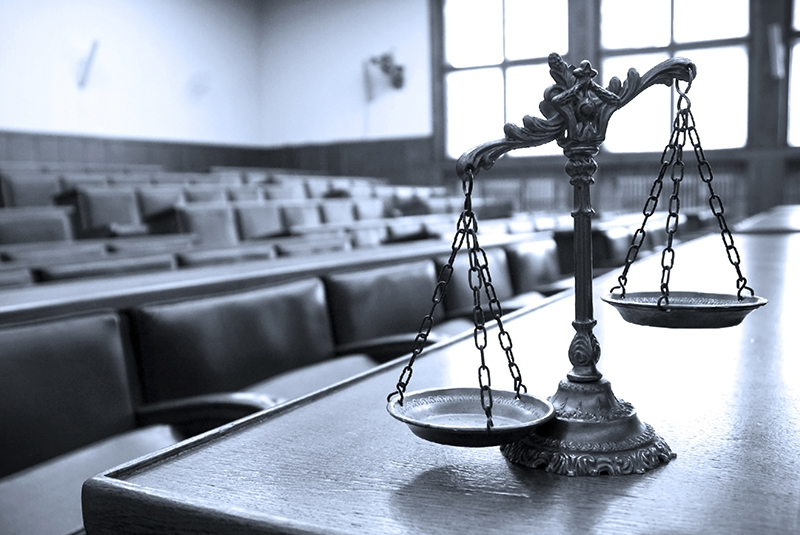Best Federal Appeal Lawyers: Getting Justice in Federal Appeals
Best Federal Appeal Lawyers: Getting Justice in Federal Appeals
Blog Article
Debunking the Refine of Federal Appeals: What You Required to Know
Navigating the elaborate realm of federal charms can usually feel like traversing uncharted waters for those unfamiliar with the process. Comprehending the nuances of appellate court territory, the ins and outs of submitting a notification of allure, offering an engaging quick, and making a persuasive dental argument are vital components that can considerably impact the outcome of a case. By deciphering the layers of complexity surrounding federal appeals, people can obtain a more clear understanding right into the systems that regulate this critical point of the legal system.
Understanding Federal Appeals Process
Delving right into the detailed world of the federal appeals process introduces a systematic and structured journey via the judicial system. Federal allures serve as an important mechanism for reviewing choices made by reduced courts. Comprehending this process is essential for anyone entailed in lawful proceedings at the government degree.
The process typically starts with a celebration dissatisfied with a reduced court's ruling filing a notification of charm. This triggers a testimonial by a higher court, where a panel of judges analyzes the legal arguments offered by both celebrations. Briefs outlining the lawful reasoning behind each event's placement are submitted, and dental disagreements may be heard to make clear complex concerns.
The appellate court's decision is based on an extensive examination of the reduced court's proceedings and the arguments offered. Once the appellate court reaches a decision, it can affirm, reverse, remand, or modify the reduced court's judgment, supplying clearness and finality to the legal disagreement.
Appellate Court Territory Described
Appellate court territory refers to the range of instances that a specific appellate court has the power to review and make a decision upon. Unlike trial courts that listen to cases for the very first time, appellate courts are restricted to examining choices made by lower courts.
Appellate courts have territory over specific kinds of cases, normally those involving legal mistakes, procedural problems, or inquiries of law as opposed to factual conflicts. The territory of appellate courts is generally detailed in laws and laws that regulate the court system. Recognizing appellate court jurisdiction is important for events associated with the charms procedure as it establishes whether a case is eligible for testimonial and the level to which the appellate court can intervene in the lower court's decision.
Declaring a Notification of Appeal
The initial step in beginning the government allures process involves filing a Notice of Charm with the ideal appellate court. This crucial file formally informs the court and the other celebrations entailed in the instance that the appealing event plans to look for a review of the lower court's decision. Filing a Notice of Appeal is a strict procedural requirement that sets the appellate process in motion.
When preparing the Notice of Appeal, it is important to guarantee compliance with the particular guidelines and guidelines of the relevant appellate court. federal crime lawyer. The paper needs to normally consist of info such as the case name, the lower court's name, the date of the judgment being appealed, and a succinct declaration suggesting the grounds for the appeal

Instruction and Oral Disagreement
In the appellate procedure, presenting created briefs and engaging in oral debates play critical duties in advocating for the appealing celebration's placement before the appellate court. Briefs are detailed lawful files that detail the parties' disagreements, lawful authorities, and evaluation supporting their settings. These created entries offer the court with an in-depth understanding of the realities of the situation, the appropriate law, and why the appealing party thinks the reduced court's choice need to be reversed.
Following the entry and review of the briefs, dental arguments supply the celebrations an opportunity to more clarify their positions, attend to any kind of inquiries the appellate courts may have, and emphasize crucial points from their created briefs. Dental arguments are a possibility for the attorneys to convince the judges through spoken advocacy and feedbacks to questions from the bench.
Both the written briefs and dental arguments are essential components of the appellate process, allowing events to offer their situation thoroughly and compellingly before the appellate court. - federal crime attorney
Getting the Appellate Court Choice
Upon conclusion of oral disagreements and entry of created briefs, the next essential stage in the appellate process entails waiting for the definitive ruling from the appellate court. This duration of expectancy can be filled with a mix of stress and anxiety and wish for events included in the appeal. The appellate court's choice is typically delivered in a created style and details the court's final thoughts on the legal concerns offered, the reasoning behind their decision, and the judgment rendered. The moment structure for getting the appellate court's decision can differ, however courts strive to provide prompt resolutions. When the decision is released, celebrations should thoroughly review the court's judgment to comprehend the end result and establish any type of further actions that may be essential. Whether the appellate court verifies, reverses, or remands the reduced court's decision, recognizing the ramifications of the ruling is vital for all celebrations associated with the appellate procedure. Therefore, without delay evaluating and understanding the appellate court's decision is essential in browsing the following steps in the lawful procedures.
Verdict
Understanding the appellate court jurisdiction, filing a notice of allure, preparing briefs, and presenting oral arguments are all vital components of this process. Inevitably, obtaining the appellate court choice can give quality and resolution to lawful disagreements.
As we proceed from recognizing the government charms process to dissecting the intricacies of appellate court jurisdiction, a fundamental facet comes to light pertaining to the authority and restrictions of these greater courts in the legal landscape. Appellate court jurisdiction refers to the scope of instances that a certain appellate court has the power to choose and review upon. Unlike test courts that listen to cases for the first time, appellate courts are restricted to examining decisions made by reduced courts. Recognizing appellate court jurisdiction is essential for parties entailed in the charms process as it determines whether a situation is eligible for review and the extent to which the appellate court can intervene in the lower court's choice.

Report this page